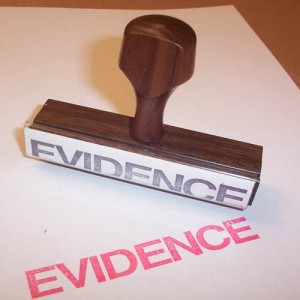I was in my first executive role, V.P. of National Sales. It was my first week on the job. It was a new company and I was at a conference. The first day on the floor, one of the territory reps asked me if I’d be willing to meet with one of her prospects. She said she was about to close the deal and wanted my help to get her over the final hump. Ten minutes into the conversation, not only did I realize the deal wasn’t going to close, but that I had at least one bad sales rep and if the rest of the team was anything like her I was in trouble. It also suggested I had manager-level challenges. 
During the meeting it was apparent the prospect was nowhere near making a decision, never mind a decision to buy from us. They were still in the discovery phase. The customer didn’t understand our unique value. They were still evaluating their technical options and most importantly they were struggling with budget. There was absolutely NO EVIDENCE to suggest this deal was going to close.
Sales can be emotional. The reasons for poorly forecasting a deal close are many. There is pressure on the sales people to tell the manager what they “think” he/she wants to hear. There is fear of failure. There are missed objections. There are missed buying signs. The competition makes a last minute push and steals it away. The reasons are countless.
To stop the insanity, ask for evidence. When it comes to getting a better understanding on whether a deal is going well or not and if it is going to close, ask for evidence. Leave the emotion and “I thinks” at the door. If sales people are specific and deliberate in customer conversations the evidence will be clear. Little will be left for interpretation.
Clarify deal closing questions with: “What evidence do you have that it’s going to close?” Responses need to be factual. They need to be rooted in specific, measurable, relevant information.
Answers such as;
“We are the front runner.”, “My contact told me we are going to win it.”, “We are positioned well.” etc. lack evidence. Your job as the sales leader is to dig deeper. Ask probing questions that provide the evidence to support the claim.
Questions such as:
“Why do you believe you are the front runner?”, “Who at the organization shared that with you?”, “Are they the decision maker?”, “Why is it going to close on X date?”, “Why do they have to buy NOW?”, “Can the competition cut their prices or offer additional services free and cut us out?”, “Why don’t you think they will?”, “Why do you think the prospect won’t change their mind if the competition gets aggressive?” etc. The objective is to get as much evidence as possible on why the deal is going to close.
As sales leaders, it’s your job to hold your team accountable. Requiring evidence is key to doing just that.
Evidence is crucial. In strong sales organizations deals are “lost until proven closed.”

